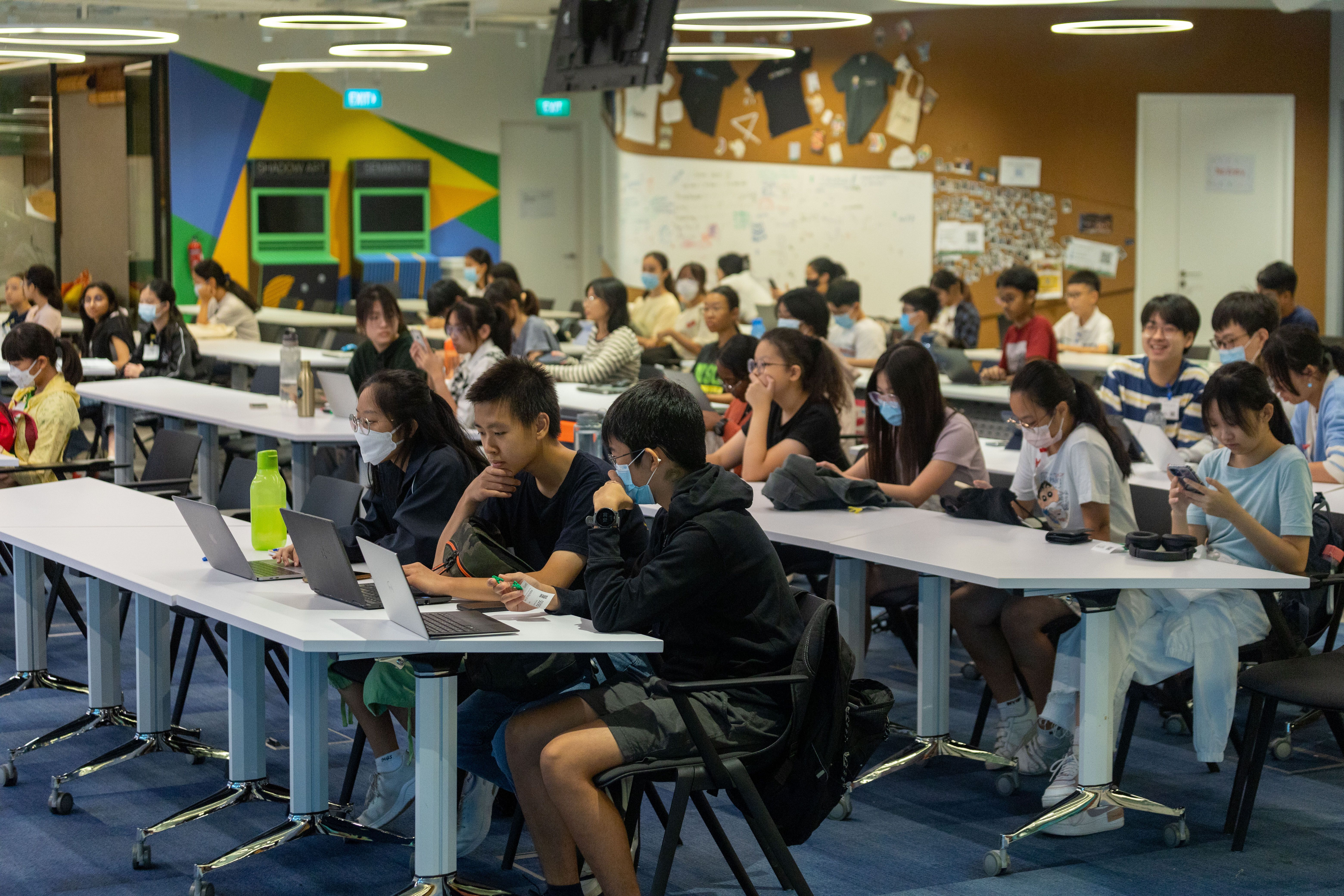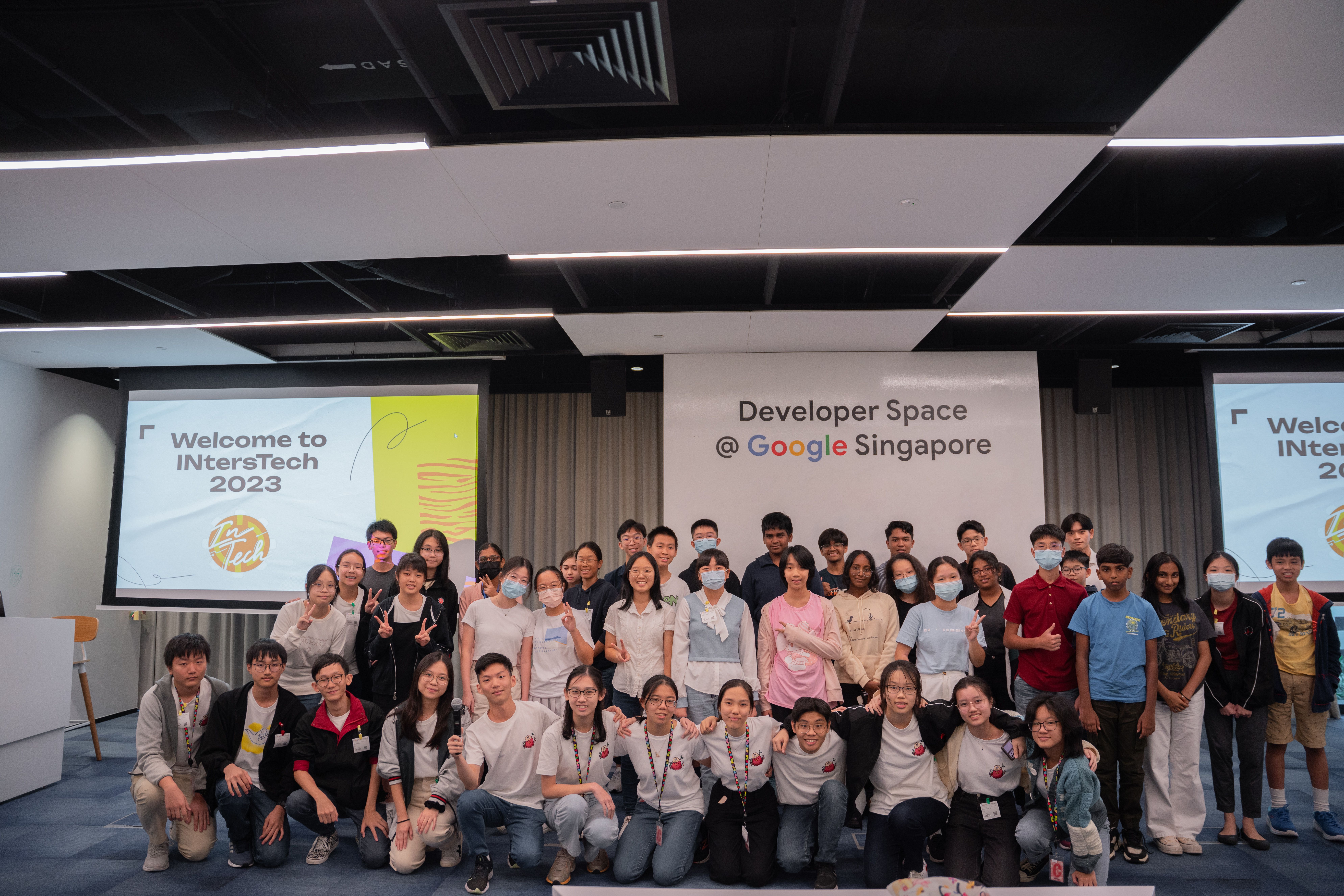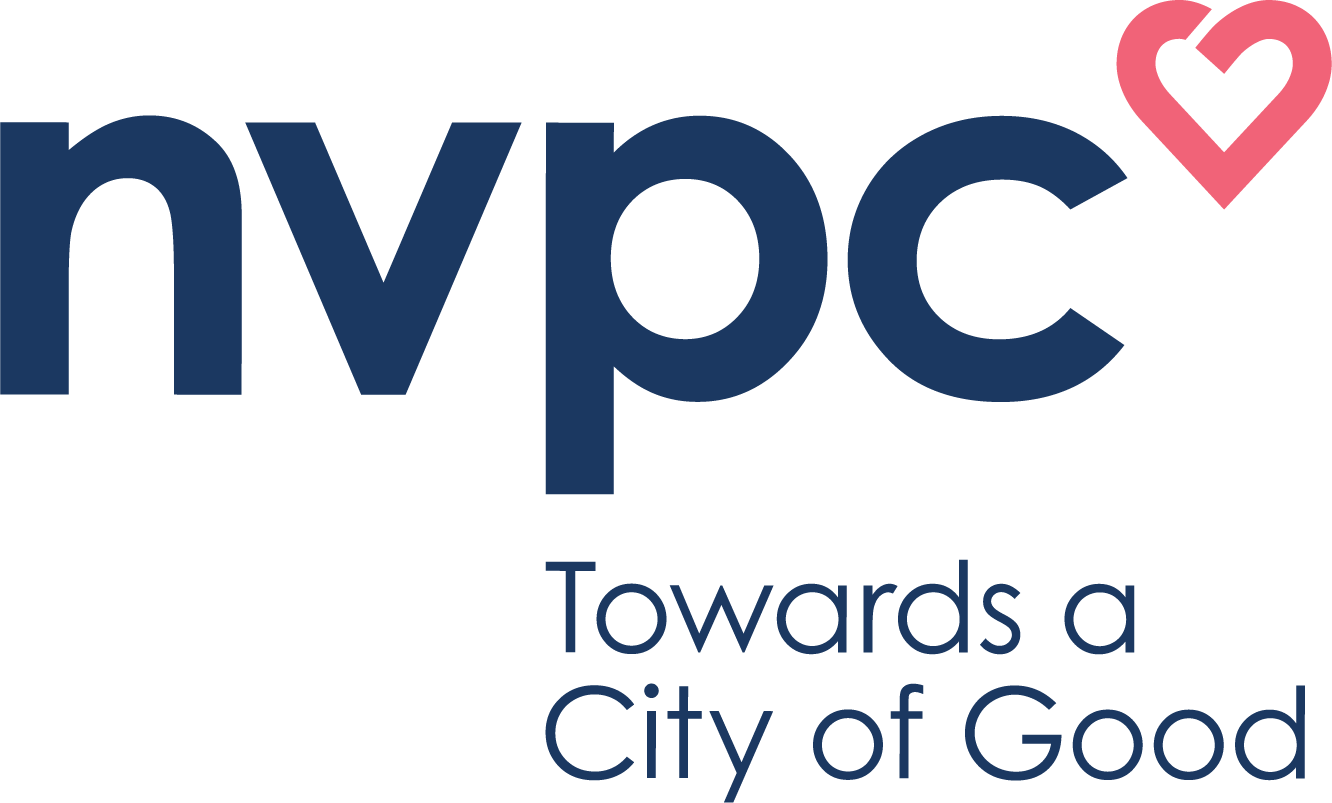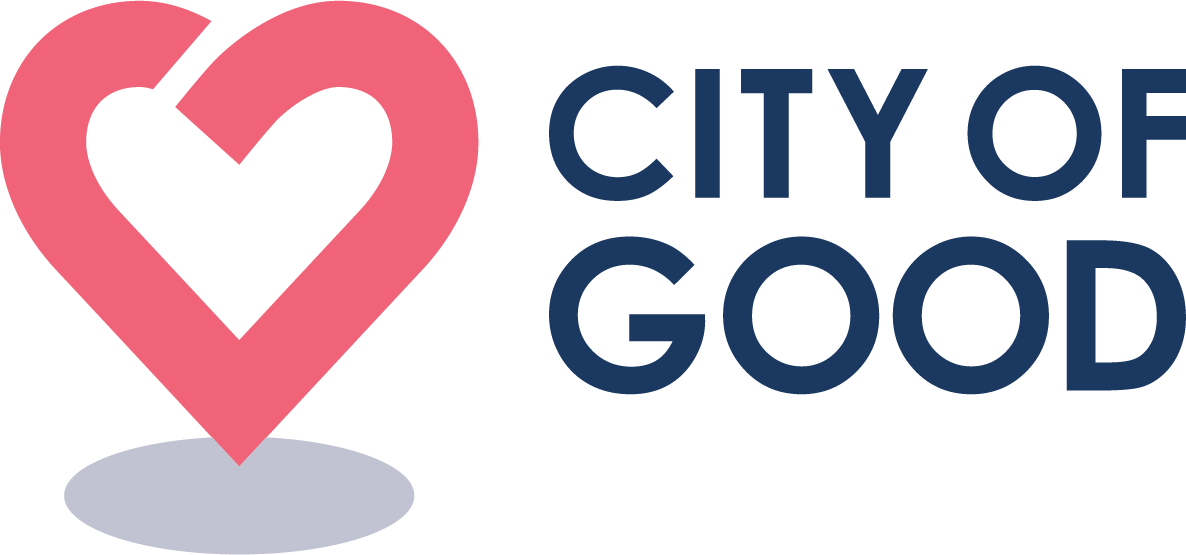Groundup Features: InTech

Jessie, Founder of InTech (PHOTO: InTech)
In this edition of Groundup Features, we speak to Jessie, the founder of InTech - a groundup that promotes technology education and literacy amongst youth through curating eye-catching infographics and events such as conferences and webinars. InTech aspires to make technology more accessible and less daunting to youths, enabling them to uncover and appreciate the various possibilities that technology brings.
Hi Jessie, thanks for being here with us today! Tell us more about yourself!
Hi everyone, I’m Jessie! I’m currently a JC2 student who is taking computing as one of my subjects. But don’t be mistaken, I’m by no means an avid tech person or a coder. My interest in technology is what led me to start InTech with my friends.
Could you share with us the initiatives or programmes you have under InTech?
Let me start off with why I founded InTech before moving on to our initiatives and how I foresee them to be like! I started InTech because I thought the disparity between people who were already well-versed with technology and those who have not yet started or even explored is really big - and that gap is persisting. I struggled a lot initially because of how technical it was (the barriers of entry are really high). People always use terms such as Artificial Intelligence (AI) and Machine Learning (ML) but do they really know what they mean? When I tried to look for resources, I realised that there aren't really a lot of student interest groups or non-profit initiatives out there to engage youths.
For more established organisations, they usually have more difficulty raising awareness about technology to youths. That’s why I started InTech - to plug this gap. We started out by pushing out digestible content to youths such as social media graphics and subsequently raised our capacity to hold webinars. However, we felt that the human touch was lacking. To engage youths, we ought to deliver content that is more understandable through our own lens. And plus, we found that creating impact through social media was limited.
So we held a conference, INtersTECH, for close to 100 youths at the Google office and published it with Infocomm Media Development Authority (IMDA) for their Media Clubs in June recently. That conference centered on the intersection of technology because we wanted to drive home the idea that technology isn’t just about coding - there's a lot more than that. There are more possibilities to incorporate technology into our daily lives and many intersections worthy of exploration.

Could you share with us what running InTech looks like?
I run InTech with three other ExCO members who are also in their second year of junior college. We expanded by recruiting volunteers for the publicity and content team, who work on our social media content. Our volunteers play a major role because if not for them, I don’t think we could have done it with just us ExCOs. For instance, I had two logistics directors who were in charge of ordering lunch for 100 people and handling logistics such as prizes for the conference. Other roles played by our volunteers included shirt and merch design, website maintenance, and programme coordinators (they even had to devise back-up plans!). It was definitely a lot of hard work from everyone.
In total, my team comprises 30-40 people playing different roles. This was an approach which initially worked for us but now we’re looking at restructuring ourselves.
Besides overseeing InTech and keeping everyone on task, I personally take on many calls with various stakeholders and brainstorm different possibilities of moving our work forward! It’s really trial and error. For instance, finding a venue for the INtersTECH conference took us 6 or 7 proposals, countless meetings with stakeholders and cold calls/texts/emails - I think I’m going to be really good at this but it’s something that I enjoy! The excitement of knowing that there are endless possibilities out there for me to explore and the sense of fulfillment I get from finding a solution is truly immense.
Besides communicating with stakeholders, I also check in on the welfare of my team members by noting their schedules and taking care not to bother them in their busy periods. What I would usually do is to first ask everyone to list their commitments for the term ahead - this is helpful for project management because it helps the team to be clear on the workflow within a specific timeframe and breaking tasks down into smaller, manageable chunks. Whenever we roll out an initiative, we would also make sure that every single ExCO is agreeable to that and not just 1-2 people - which would render it pointless.
 InTech’s ExCO tour to Google Singapore’s office (PHOTO: Jessie)
InTech’s ExCO tour to Google Singapore’s office (PHOTO: Jessie)
How do you boost the morale within your team when the going gets tough (e.g., exam seasons)?
We will try to block off schedules during exam periods. If there is a need to put up social media content, we would accumulate bit by bit to slowly post it. I personally think this is a smart thing to do to avoid bothering my friends unnecessarily during these stressful times. In general, when faced with problems, I would try to suggest a few possibilities and tell them what’s going to happen for the next week, or update them again on the progress after exploring the options. I don’t leave them hanging or disappear because I faced a problem. My volunteers and ExCO members have been very supportive of this form of accountability.
Were there any encouraging moments that kept you going?
There were a few encouraging moments when organisations told us that we’re doing really good work, and to keep it up because no one else is doing this. They were also really impressed when they learnt that we’re doing all these amidst our hectic school lives. We’ve also received positive feedback from our participants and volunteers after the conference saying that they wanted to join again next year - which was really nice to hear.

What were some of the challenges your team faced and how did your team resolve them?
Lack of support from our school is one of the main challenges. The school management was concerned about many things such as students’ safety, speakers’ profiles and they weren’t confident that something of this scale could be done for future batches given the lack of a past track record. Our team was panicking when we thought that we might have to hold the conference online which would make it less engaging. I eventually managed to secure a venue through texting someone on LinkedIn who offered to link us up with a representative from Google Community. That was a really bold move for me. As for the speakers, we similarly contacted them via LinkedIn or through cold emailing (again, a very useful method!).
What has been the biggest takeaway for you/your team thus far?
The need for clear communication. We knew right from the start that clear communication was essential whether it was between us ExCO members, with our volunteers or even with the participants. Hence, we will always try our best to make sure that everyone is informed. If anyone is lost, it would make engagement much harder. This is an important thing for groundups to be aware of, especially when they are expanding. When expansion happens too quickly, communication tends to get lost and volunteers could be disengaged easily.
There were also other things that I’ve learnt, such as the importance of defining why I'm doing what I'm doing when times are tough. I questioned whether there is any real impact that I’m making or whether I was just making myself feel good. This is why we did an After Action Review (AAR) after the conference to be honest with ourselves about what went well, what could be improved on and whether the event has achieved the expected impact or original goal.
Where do you see InTech heading towards as the next stage?
My ExCO team and I discussed how we can bring the impact closer to the students in the different schools because the current makeup of our team is concentrated in certain schools - which is not the best thing to do. It would be good to have ExCO members or volunteers from other schools as this could help to increase the awareness of our initiatives. We also hope to reach out more to the vulnerable youths. Still, we are cautious to not dabble with so many things. When we first started and weren’t sure of where we wanted to concentrate our efforts , we ended up collaborating with many organisations which led to things being all over the place. Hence, we are thinking of just concentrating on a few things. One new initiative that we are interested in trying out is mentorship whereby students can be paired with university-level undergraduates to embark on a mini research project - something that not every student would have the chance to do so. I view this as a beginner-friendly way to help youths start exploring technology.
InTech is definitely something that will continue and we hope to make the conference a yearly affair. In terms of volunteer management, I would like to work on engaging my volunteers better and allowing them to have a stake in how the organisation runs. That’s how organisations should sustain and not just depend on a few ExCO members.

As someone who has been through the whole journey of building up your own groundup, any advice for peers who are keen to start their own groundup initiative?
Yes, definitely! Here are some quick points newcomers can take into consideration:
- Don’t be afraid to just reach out to strangers and try your luck - you’ll never know what opportunities you might uncover!
- Be in the community of the cause you are serving. This could either be physical or virtual via joining a Telegram group related to your cause area. Not only is it easier for you to reach out and establish new connections, you can also be more aware of the scene and seek input from other people.
- Hold physical bonding sessions to develop and nurture the relationships within your team, if they aren’t already acquainted with one another.
- Don’t be afraid to give volunteers important work. At the same time, choose the right people to do the important things to ensure a more efficient distribution of workload and for things to move ahead.
- Observe what people are doing on the ground. It could be other groundups, established non-profit organisations or even Community Centres (CCs) that are semi-related to your cause. If you are able to reflect deeply, you can take a lot away from them.
For readers of this article who would like to support InTech, is there a way to do that? Are there any channels that they can subscribe to or any events that they can sign up for?
They could follow us on our LinkedIn or Instagram pages! If they are interested in joining as a volunteer, they could simply text us on Instagram 🙂 We’re hoping to push out a Telegram channel soon so that if there are any new events or initiatives, people can be kept in the loop. But this is still on hold because of our upcoming A-Levels.
How do you hope that InTech helps Singapore to become a City of Good?
I don’t think we’re so noble to claim that title. But I guess groundup initiatives are there to make the community a better place because they serve different problem areas. As for InTech, it is just another platform for people to be exposed to technology and to find other like-minded communities who want to serve others in technology.
On the more operational side of things, we do our bare minimum to ensure that resources are efficiently allocated through collecting data on past programmes (eg,post session feedback). If the amount of effort we have put in is not proportionate to the impact that has been made, it is a telltale sign that we should approach the youths in a different manner to plug the existing gap sufficiently.
Fun fact: What is the first thing you would like to do after your A-level paper?
I would go and buy a camera! I’m really into landscape photography but I’ve been stuck with my phone for a very long time. If I owned a camera, I would set up an Instagram account with the photos I have taken.
About the authors: Erika is currently an intern at Groundup Central. She is deeply interested in uncovering different facets of the world and hopes to pursue her passion in social research.
Join our mailing list to get updated on the latest groundup happenings!
National Volunteer & Philanthropy Centre
- 6 Eu Tong Sen St, #04-88 The Central, Singapore 059817
(+65) 6550 9595 - groundups@nvpc.org.sg
Copyright © 2023 Groundup Central. All rights reserved.

